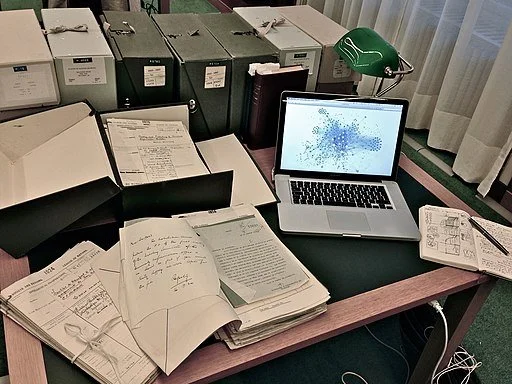Word of the Year, the palazzo pants of language
By Cindy Layton
If Merriam Webster had a Word of the Year list in 1967 the winner would be groovy. It surged as teenage slang to describe something as marvelous or excellent, reaching its heights at a time in our history when things were not groovy. And then, snap! Before Grandma could give voice to the idea that Lawrence Welk was groovy, the word was bullied from existence. Users were branded not as groovy, but as hopelessly square.
It’s remarkable how quickly our language changes and yet, how few of these words survive the scrutiny of time. They’re the year’s fashion trend, the palazzo pants of language and writing.
Anyone remember these Word of the Year selections from the past?
From the American Dialect Society (ADS):
1993 Word of the Year: information superhighway, the national and international network of computers.
2003 Selection from the category “most useful word or phrase which most fills a need for a new word.” Winner - flexitarian: noun, a vegetarian who occasionally eats meat.
2011 Word of the Year occupy – verb, noun, and combining form referring to the Occupy protest movement.
Merriam-Webster’s Word of the Year for 2006 was Stephen Colbert’s jab at cynicism –
Truthiness (noun), truth coming from the gut, not books; preferring to believe what you wish to believe, rather than what is known to be true.
While there’s still humor to be found there, I doubt even Colbert could have imagined how truthiness would morph into a massive adherence to a belief in The Big Lie (itself a candidate for ADS word of the year 2021.)
The Merriam-Webster Word of the Year for 2021 was vaccine while the Oxford English Dictionary chose vax along with its iterations: anti-vax, vaxxie, vax (n) vax (v) anti-vaxxer, double-vaxxed. Clearly the Oxford got a whole lot more mileage out of their choice.
Not since platform heels have I rooted for a trend to fade so quickly.
Some words on these lists are the contraction of technology and current events with a nod to pop-culture:
pingdemic: (noun) the epidemic of absences from work caused by “pings” from apps that warned users if they’d been in close contact with an infected person.
For the British dictionary Collins the word chosen for 2021 is NFT, which isn’t a word but an initialism. (Don’t you have rules, Collins?) Regardless, here’s their definition:
NFT: (noun) non-fungible token—a unique digital certificate, registered in a blockchain, that is used to record ownership of an asset such as an artwork or collectible; an asset whose ownership is recorded by means of a non-fungible token.
In other words, NFT is the pleather pants of the information superhighway.
Collins Dictionary also included:
Regencycore (noun) a distinctive fashion aesthetic inspired by Georgian styles made popular by the TV show Bridgerton.
Hmmm.. a made-up word based on a fashion style created by a limited-series TV show. Sounds groovy.
For a snarky and hilarious look back at fashion trends best forgotten read Mehera Bonner here
Take a look at the Oxford Dictionary’s list of 8 new English words you need for 2022





